Dustin Lance Black traces the path that led him to tell our whole community’s story in the epic new ABC miniseries When We Rise.
Show business is an industry renowned for self-Promotion. So it’s a Minor miracle that an avowed Introvert like Dustin Lance Black would become a celebrity — though he has done so largely by putting other people in the spotlight.
The screenwriter is about to unveil his most ambitious project to date: a sprawling ABC miniseries called When We Rise, inspired in part by his friend Cleve Jones’ account of the struggle for gay equality. The program, with a cast led by Mary Louise Parker and Guy Pearce, tracks the evolution of the gay rights movement from before AIDS up through the Supreme Court decision affirming same-sex marriage and beyond. If some of the terrain seems familiar, perhaps it’s because Black has dramatized some of these characters before, in the 2008 film Milk that won him an Academy Award for Best Original Screenplay.
The story would make fertile ground for any dramatist, since it’s rife with stunning victories and ghastly setbacks. Black fervently believes future generations need to know the grand sweep of it all, and he refuses to remain silent in the face of oppression. Despite an innate shyness, he’s spoken up on behalf of the community time and again — famously using his Oscar acceptance speech to out himself in the most public way possible, and later that year speaking from the steps of the U.S. Captiol before a group of 200,00 LGBT stalwarts at the National Equality March.
Today, Black is finally back in the London home he shares with British Olympic diver Tom Daley. But he continues to ruminate on the miniseries now in post-production.
“I’d long considered a project like this,” Black reflects. “There were other networks that I love, saying they were interested.” But when he heard that ABC was considering taking on the program, Black jumped at the chance immediately. He believes it means something for When We Rise to air on a network known for its family programming and trusted by his deeply religious Southern relatives. “We might not be just preaching to the choir with it,” he says. “We might change a heart or two.”

Dustin Lance Black —
Photo Courtesy ABC
Raised steeped in Mormonism and having spent his formative years in San Antonio, Texas, Black understood before he knew he was gay that there was something wrong with being different. “I was an incredibly shy kid in school,” he recalls. “I basically missed my first two years sitting in the principal’s office because I’d get panic attacks being around other kids.”
At home, Black discovered the power and resonance of storytelling. “In the South, storytelling is currency,” he says, “and if you’re isolated in Texas and a member of the Mormon church, … well, I wasn’t going to hear a lot about Mormonism when everyone around us was Southern Baptist. So my mother made a board with felt religious figures that would stick to it. And on Mondays we had Family Home Evening, and we’d use it to take turns telling stories from the Book of Mormon or a Bible story. As the gay, middle son, I was drawn to telling the stories of the first Mormons in America … perhaps because they were always depicted as muscly young men.”
But Black also learned that sharing carried some risk. “When I was six, that was the first time I heard the term ‘homosexual,’” he remembers. “The Mormon Prophet was being beamed in from Salt Lake City via satellite and he compared being gay to murder. So growing up in the church I knew what great shame being gay would bring to me and my family. I feared for my future on this Earth and beyond.”
Eventually his mother remarried and the family resettled in California, where Black began to grasp wider possibilities. His mother, Black recalls, “asked herself: What do you do with a kid who’s so shy? She said, ‘I’m gonna put him in drama class.’ And she did. And I liked it! One of the reasons I think I liked it so much was that I sensed there were people like me there. There were gay mentors, who weren’t necessarily out, but I could tell. And they didn’t have horns like the Mormon Prophet said they would. They seemed happy. And there in the theater I witnessed the power of storytelling.”

Photo courtesy ABC/ Eike Schrater
Later, while studying film, theater and televsion at UCLA, Black started telling those closest to him that he was gay. Not long before he graduated, he came out to his college roomate. Then “I inadvertently came out to my Mother the Christmas before I graduated when she was going on and on about ‘Don’t Ask, Don’t Tell,’ which she thought was too inclusive. I started to cry, and she understood what those tears meant. Then came the long process of acceptance for her and me. I came out to my brothers a year or so later, and when I came out on the stage of the Academy Awards it was like coming out to the rest of the world. It’s a process. And for many people coming out is a process that never ends.”
A mere four years after graduating, Black was assembling one gay-themed project after another, from a bromance (Journey of Jared Price) to a coming-out short (Something Close to Heaven) to a road doc he directed about six gay men headed to Burning Man (On the Bus).
In 2006, Black landed a staff writing job on HBO’s Big Love, which revolved around a polygamous Mormon family. His background and experience were obvious assets. “I believe the creators of that show were looking for authenticity, and I was one of the few writers in Hollywood who’d grown up devoutly Mormon,” he says. Black rose up the ranks quickly from staff writer to executive story editor to co-producer.
Throughout those years, he nursed a pet project: Bringing the story of martyred San Francisco city supervisor Harvey Milk to the screen. Black is still setting the record straight about the genesis of the film. “I heard the story of Harvey Milk as a young man in the theater when we were living in Northen California,” he attests, “long before I knew of any book, well before I ever saw any documentary.“ He says such provocative material wouldn’t have been floating around his Mormon home. “I think I got a hold of [Randy Shilts’ 1982 book] The Mayor of Castro Street some time later, and it wasn’t until much later that I got hold of The Times of Harvey Milk [a film documentary by Rob Epstein] as a student at UCLA film school.” Because he had the rights to neither the Shilts book nor the Epstein film, Black delved into his own three years of research, aided by Milk’s real-life confidant, Cleve Jones.
Jones emerges next month as one of the central characters in the eight-hour ABC epic When We Rise. He’s also the author whose memoir provides the show’s name and inspiration. “But this mini-series isn’t Milk at all,” Black insists. “When We Rise isn’t about any one person or kind of person; it’s about a handful of diverse LGBT people and families looking for hope and safety starting back in 1971, and it’s much more about us and coming together in our struggle for equality for all.”
Black believes he’s avoided some of the tactical errors of last summer’s much-derided Stonewall, which depicted the famed 1969 riots — largely staged by Black and Latin drag queens — through the eyes of a young white hunk. “This series isn’t just about the gay, white, male experience. And to do that right, I needed help. So we built our writer’s room, assembled our directors [among them, Gus Van Sant, the director behind Milk], and built our cast from a talented group of gay and straight, black and brown and white, male and female, cisgender and trans, L, G, B and T artists,” he says.” Because that’s the truth of our movement and our world. It’s that diverse and that’s a very good thing.”
Accordingly, Black uses When We Rise to single out an assortment of previously unsung heroes for their vital contributions to the cause of LGBT rights. He excitedly describes the film as “also about Roma Guy, who … moved to San Francisco looking for a place for lesbians in the women’s movement. It’s the story of Diane Jones, who famously took great care of AIDS patients at San Francisco General and started a family of her own. It’s about Ken Jones, a young, gay, black man who served three tours in Vietnam,” Black continues, and “who learned that it wasn’t only difficult to be gay in the black civil rights movement, but confronted racism within the Castro’s gay community as well. It’s also about Cecilia Chung, a young Chinese American woman who was trans before she even knew there was a word for that, and who went on to fight for trans people and people with HIV.”
Black is more than ready to have his film go public, as the gay commmunity must now grapple with a backlash from those who have opposed any kind of LGBTQ rights from the start. “I would give anything for When We Rise to be less necessary than it is now,” he concludes, “but in the miniseries, you see some of the very same things happen in our history that we’re facing now. You see our [forefathers] respond to setbacks as the pendulum swings backward. You witness how our people resist oppression, and you see battles lost and battles won, and we examine why we lost and won those battles. I believe it is important to identify this moment we are in today as a great challenge, not to minimize it; to stand up, and to fight when necessary to stop this new administration from turning back our great progress.”
He also hopes it will teach gay people who are too young to remember when AIDS was untreatable that the struggle for marriage equality began when survivors of those who died — who should have been left in peace to grieve — lost not only partners, but homes and possessions gathered over a lifetime.
“Some of this will be an education in what it means to be a part of a civil rights struggle,” he says. “A lot of young people don’t know how hard the fight was for those who came before them, and I hope this series shows them it’s not over, and inspires them to take the baton. We want to say, ‘Here’s what was done, here’s how we did it, and now it’s your turn.’”
When We Rise premieres this February on ABC; check your local listings. Cleve Jones’ memoir of the same title is available from Hachette Books.
Priscilla’s Guy Pearce Dishes on Kylie, Spacey, Kate Winslet and More
Last modified: July 10, 2018



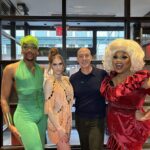
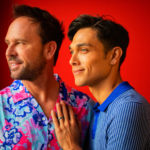
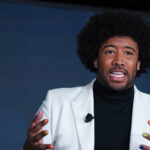
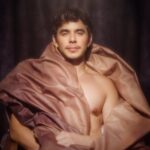

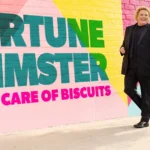
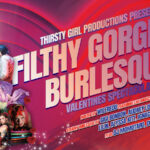



This has the potential to be a memorable moment in television. To have Dustin Lance Black behind the script, to have such as Gus Van Sant and Dee Rees directing some of the episodes, to be genuinely diverse in casting … fingers crossed. To see our post-Stonewall history captured as it should be. Cautiously optimistic.